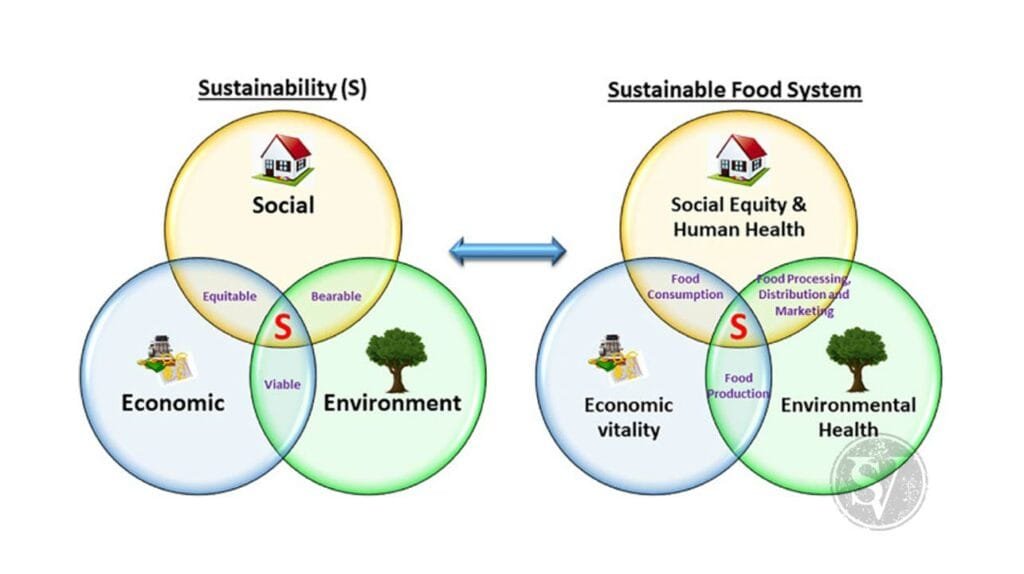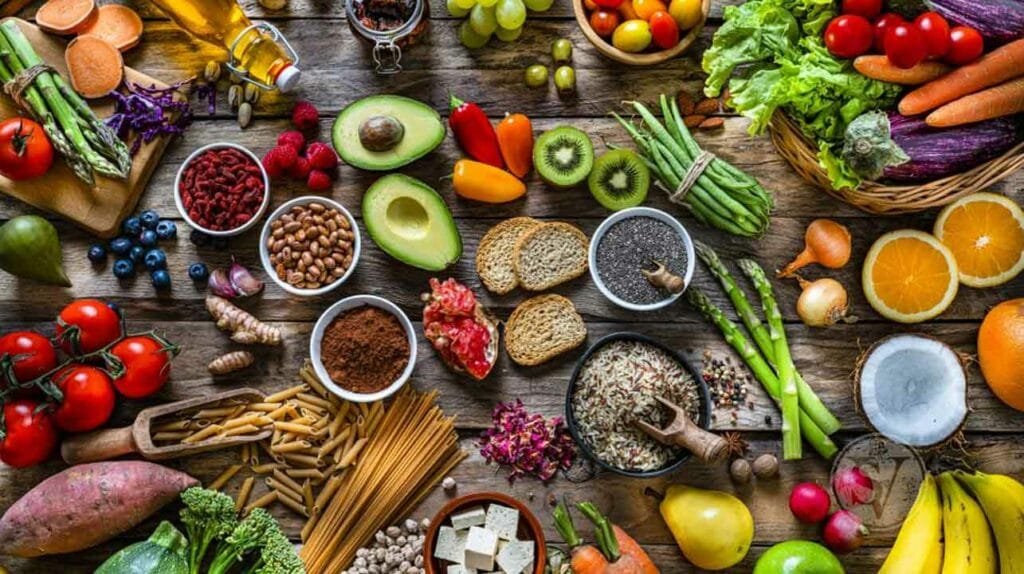Our Food in the Bronze Age: Healthy Diets from Sustainable Food System
Food is the single strongest lever to optimize human health and environmental sustainability on Earth. However, food is currently threatening both people and the planet. An immense challenge facing humanity is to provide a growing world population with healthy diets from sustainable food systems. More than 820 million people still lack sufficient food, and many more consume either low-quality diets or too much food. Unhealthy diets now pose a greater risk of morbidity and mortality than alcohol, drug, and tobacco use combined. Global food production threatens climate stability and ecosystem resilience and constitutes the single largest driver of environmental degradation and transgression of planetary boundaries. Diet from Sustainable Food is Healthy and Cost affective.

Obtaining Healthy Diets from Sustainable Food
1. Optimize Health
A healthy diet should optimize health, defined broadly as being a state of complete physical, mental and social well-being and not merely the absence of disease. Healthy diets are based on the broad literature on foods, dietary patterns, and health outcomes. It’s an optimal caloric intake and consists largely of a diversity of plant-based foods, low amounts of animal source foods, containing unsaturated rather than saturated fats, and limited amounts of refined grains, highly processed foods, and added sugars. Doubling in the consumption of healthy foods such as fruits, vegetables, legumes, and nuts, and a greater than 50% reduction in global consumption of less healthy foods such as added sugars and red meat.
2.Sustainable Food Production
Interacting ecological systems and processes in the Earth system, in particular between the climate system and the biosphere, regulate the state of the planet.
3.Achieving planetary health diets
Achieving a sustainable food system that can deliver healthy diets for a growing population presents formidable challenges. Identify a set of actions that meet the scientific targets for healthy diets and sustainable food production, which will allow for a transition of the global food system within a safe operating space. Requires a combination of substantial shifts toward mostly plant-based dietary patterns, dramatic reductions in food losses and waste, and major improvements in food production practices.

What can Diet from Sustainable Food accomplish?
Diet from Sustainable Food can seek the following goals.
- Increased consumption of plant-based foods – Including more fruits, vegetables, nuts, seeds, and whole grains, limiting animal foods
- Fulfill Calorie Requirement :Produce enough calories to feed a growing global population but must also produce a diversity of foods that nurture human health and support environmental sustainability
- Bring about a transformation of Agriculture: Requires a new agricultural revolution that is based on sustainable intensification and driven by sustainability and system innovation
- Ocean Management: Need to improve the management of the world’s oceans to ensure that fisheries do not negatively impact ecosystems, fish stocks are utilized responsibility
- Reduce Food Losses: Substantially reducing food losses on the production side and food waste on the consumption side is essential
Tips for Eating Sustainably
Instead of restricting your protein source to beef only, include other sources such as fish and legumes. They can help to add omega-3 and omega-6 fats, and antioxidants to the body.
- Eat more plant-based foods– Today, more people than at any other time in history are opting for diets made up of plant-based foods such as nuts, beans, and vegetables. Plant-based foods have been demonstrated to be healthier compared to animal-based options. People are taking inspiration from Asian communities such as Malaysia and China that largely rely on plant-based foods.
- Growing your own food- When you grow your own food, it means that you have cut the need to transport food over long distances using vehicles that release emissions into the environment. It also means that you will help to absorb some carbon dioxide from the atmosphere using your food crops.
Sustainable Food options are available at home
Note that growing your own food does not mean you require a large piece of land. You can simply use a garden to grow kales, tomatoes, onions, and herbs. You can also use a balcony or window box to plant food crops in pots.
Also Read: How to avoid junk Foods?


